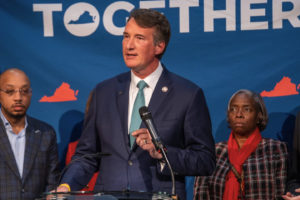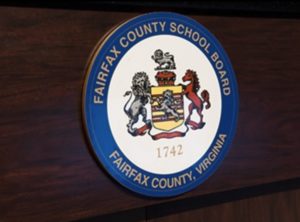Is Oklahoma AG Drummond’s ‘mayday’ over a Catholic charter school a politically motivated false alarm?
The legality of religious charter schools may be unsettled by the courts, but not for Oklahoma’s attorney general, who is peddling his opposition far and wide in what may be a politically…

The legality of religious charter schools may be unsettled by the courts, but not for Oklahoma’s attorney general, who is peddling his opposition far and wide in what may be a politically motivated squabble with the governor.
AG Gentner Drummond has written a smattering of op-eds to make his case against the Oklahoma Statewide Virtual Charter School Board’s approval of a Catholic charter school, calling it “cause for serious concern,” a decision that “drove a stake in the heart of religious liberty,” a violation of the First Amendment, “a deeply troubling effort to reshape public education in America,” and “one religion receiv[ing] approval.”
In a press release, Drummond even claimed “the board members violated their oath in order to fund religious schools with our tax dollars.” And if the courts don’t stop it, he declares, “the damage to the ideal of religious liberty will be irreversible.”
Is this Drummond’s midnight ride? Are the British coming? Are we on the precipice of losing the religious liberty we have literally fought for as a country? Gather the troops!
Despite the frightening mayday, Oklahoma’s rookie attorney general is making a questionable case that, for better or worse, is bringing a lot of attention to the wealthy businessman and former fighter pilot, who is rumored to have aspirations for the governor’s seat currently occupied by Kevin Stitt, a vocal supporter of religious charters.
The AG is not just being cautious about an unsettled legal issue – whether charter schools are state actors – which is what Oklahomans might want from their elected official. Rather, he is making questionable, non-legal arguments against religious charters, even parading them out nationally in op-eds, as one might when seeking a higher office.
In pieces for the WSJ, The Oklahoman and Tulsa World, Drummond pits taxpayers of one faith or another against hypothetical charter schools of a different religion.
He worries openly, for example, whether the Satanic Temple will apply to sponsor a charter school – or “a mosque wishing to teach sharia law.”
Drummond has thus departed from the legal question of a charter school’s public status and has resorted to scare tactics: The Satanists and Muslims are coming!
But he knows that legally, if religious charters are permitted by the courts, it doesn’t matter which religion an organization is affiliated with when it applies.
He also writes in the WSJ, “Muslim taxpayers will be forced to fund Jewish and Christian schools, Jewish taxpayers will be compelled to fund Christian and Muslim schools, and taxpayers of no faith will be made to fund religious schools of all faiths.”
Yet, taxpayers of any or no religion already “fund” programs or initiatives they don’t believe in. Just ask them.
And it’s not the Wild West: any organization, religious or otherwise, will still need to apply, meet certain criteria and go through the entire approval process – and then find students!
Drummond’s tocsin follows the 3-2 decision on June 5 by the charter board, which he disparages as “an obscure state board,” to approve an application from the Archdiocese of Oklahoma City and the Diocese of Tulsa to launch St. Isadore of Seville Virtual Charter School, which will reportedly be “Catholic in every way.”
Months before, Drummond made it clear he was opposed to the possibility, withdrawing the legal opinion of his predecessor, Stitt appointee John O’Connor, whom Drummond beat in last year’s Republican primary by less than 2% of the vote.
O’Connor’s opinion, issued in December, argued a state law prohibiting a religious organization from operating a charter school violates the First Amendment, and therefore Oklahoma’s law to that effect should be ignored, thus paving the way for a religious charter school in the state.
Shortly after taking office, Drummond withdrew O’Connor’s opinion and essentially argued the opposite.
The crux of Drummond’s legal argument is that charter schools are public schools, which the courts have in some cases determined to be “state actors.” If state actors, Drummond argues, they can’t be religious.
“Assuming a charter school is a state actor, it would clearly violate the First Amendment and Oklahoma Constitution for a public school (i.e., a state actor) to be ‘Catholic in every way,’” Drummond wrote in a letter to the executive director of the charter school board, Rebecca Wilkinson, explaining his decision to withdraw O’Conner’s opinion.
But, as Drummond admits in the same letter, “This office recognizes that the law is currently unsettled as to whether charter schools are state actors.”
The U.S. Supreme Court didn’t help when it declined to hear a related case, Charter Day School, Inc. v. Peltier, on June 26. Still, Drummond took the decision as win, though he expects “much litigation” to come on the issue of religious charter schools.
However, Drummond seems to have already made up his mind. But why?
One can’t help but think he is especially focused on opposing Stitt’s agenda, which the AG has denied, despite such obvious evidence to the contrary that local media continually speculate about a political rivalry between the two Republicans.
In March, Drummond’s chief of staff continued to chair an “anti-Stitt PAC” which ran attack ads against the governor, The Oklahoman reported. Stitt “openly suspected” tribal governments were helping fund the effort, aligned with Drummond, who accused former AG O’Connor in a debate last year of being “an appointee who is basically serving the [Stitt] administration and special interest groups.”
In the same debate, O’Connor called Drummond a “Democrat in Republican clothing.”
It may come as no surprise, then, that Democrat voters who oppose Stitt and helped elect Drummond are already hoping the AG will run for governor.
Drummond fancies himself as a maverick, independent of the governor’s administration and focused on the law: “I will continue fighting to protect the Constitution and preserve religious liberty, just as my oath requires,” he writes.
But the AG’s oath simply doesn’t require a national campaign against religious charter schools, nor political feuding with the governor.



